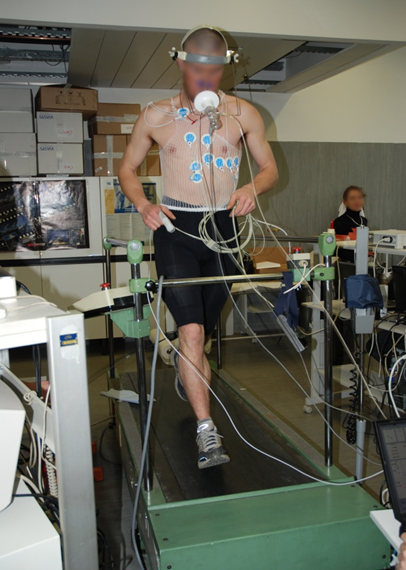
The “Rodolfo Margaria” Lab of Physiopathology of Exercise is devoted to the study of the bodily responses and adaptations to exercise. The Lab is equipped with: 1) non-invasive devices for breath-by-breath pulmonary ventilation and gas exchange analysis; 2) near infrared spectroscopy (NIRS) instruments for the evaluation of skeletal muscle oxidative metabolism; 3) Lactate analyzer for the assessment of blood lactate concentration; 4) impedance cardiography device for monitoring stroke volume and cardiac output. The Lab has also a portable device able to produce a stream of clean, low oxygen air simulating altitude exposure.
Maximal and submaximal exercise tests can be carried out on treadmill, cycle ergometer, arm ergometer and leg-kick ergometer. Both healthy subjects (sedentary and athletes competing in various sports) and patients affected by different pathologies are investigated. The effects of training/rehabilitation protocols, immobilization periods (bed rest), hypoxia/high altitude exposure and dietary interventions can be investigated.
RESEARCH TOPICS
Our Lab has an extensive experience in the study of the physiological responses to exercise in extreme environments.
More specifically, we evaluate:
- the effects of exposure to hypoxia (terrestrial or simulated, acute or chronic) in both Caucasians and high-altitude natives;
- the effects of microgravity (bed rest studies) on the skeletal muscle oxidative metabolism.
In the framework of research studies, exercise (in)tolerance is assessed by means of non-invasive tools in patients affected by cardiovascular and neurological diseases.
The effects of nutritional, pharmacological and training / rehabilitation interventions are also evaluated.
STAFF

Mauro Marzorati
Researcher